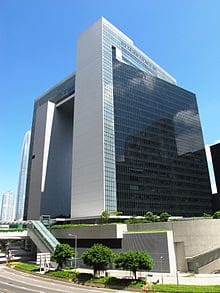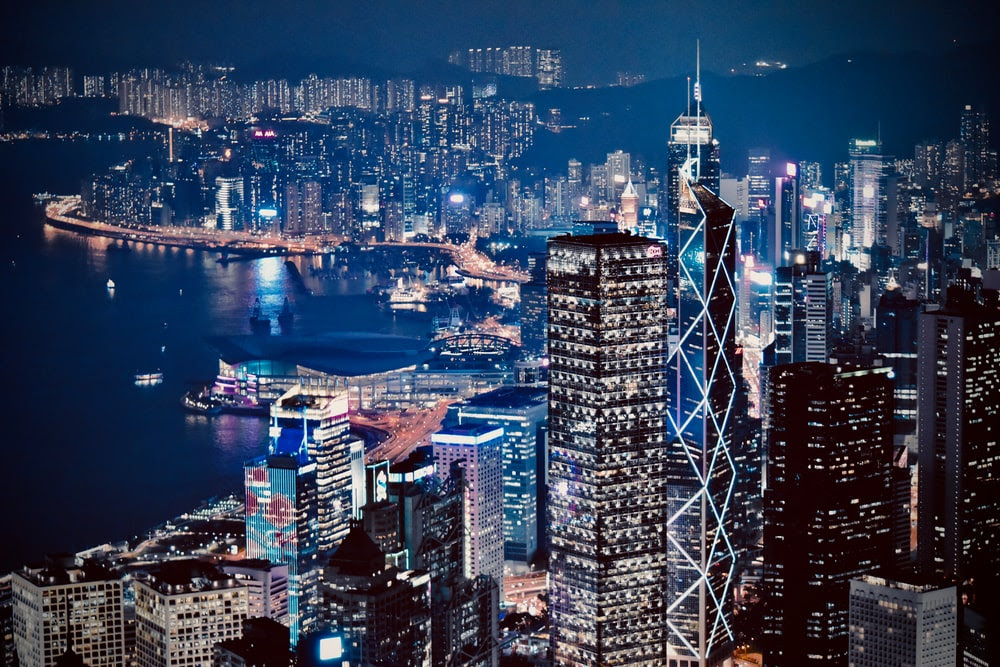MDS-C19
Hong Kong has defended planned changes to privacy laws, brushing off concerns raised by a technology industry body.
The new law targets “doxxing”, the malicious act of publishing personal information online.
But it is highly likely that tech giants could leave Hong Kong for fear of becoming responsible for user content.
Hong Kong’s leader, Carrie Lam, said an information action plan would be put in place and officials would meet with companies that are unhappy with the changes.
In a letter, the Singapore-based Asia Internet Coalition (AIC), which counts Facebook, Google, Twitter and Apple among its members, said the proposed legislation was too broad.
“Local staff of foreign platforms in Hong Kong are not responsible for the operations of the platforms; nor do they have […] the right of access or control to administer the content of online platforms,” the AIC said.
“The only way to avoid these sanctions for technology companies would be to refrain from investing and offering their services in Hong Kong, which would deprive businesses and consumers of Hong Kong, while creating new trade barriers,” the letter added.
The letter, which was written on 25 June and made public on Monday, was addressed to the Hong Kong Privacy Commissioner responsible for personal data.
In response, the department reiterated that the changes to the law would only affect illegal doxxing.
Asked about the warning on Tuesday, Hong Kong’s chief executive dismissed the concerns.
“We are targeting illegal doxxing and giving the privacy commissioners the power to investigate and conduct operations, that’s all,” Lam told reporters at a weekly press briefing.
She also said that her government would continue to speed up the adoption of the new legislation.
But it is highly likely that tech giants could leave Hong Kong for fear of becoming responsible for user content.
Hong Kong’s leader, Carrie Lam, said an information action plan would be put in place and officials would meet with companies that are unhappy with the changes.
In a letter, the Singapore-based Asia Internet Coalition (AIC), which counts Facebook, Google, Twitter and Apple among its members, said the proposed legislation was too broad.
“Local staff of foreign platforms in Hong Kong are not responsible for the operations of the platforms; nor do they have […] the right of access or control to administer the content of online platforms,” the AIC said.
“The only way to avoid these sanctions for technology companies would be to refrain from investing and offering their services in Hong Kong, which would deprive businesses and consumers of Hong Kong, while creating new trade barriers,” the letter added.
The letter, which was written on 25 June and made public on Monday, was addressed to the Hong Kong Privacy Commissioner responsible for personal data.
In response, the department reiterated that the changes to the law would only affect illegal doxxing.
Asked about the warning on Tuesday, Hong Kong’s chief executive dismissed the concerns.
“We are targeting illegal doxxing and giving the privacy commissioners the power to investigate and conduct operations, that’s all,” Lam told reporters at a weekly press briefing.
She also said that her government would continue to speed up the adoption of the new legislation.

What are the proposed changes to the Privacy Act?
In May, the Hong Kong government announced its intention to amend data privacy laws after doxxing was widely used during pro-democracy protests in 2019.
The tactic was used to name police officers and court officials who had helped quell online protests or worked on legal cases in which activists were prosecuted. Journalists and protesters have also been targeted.
The proposed legislative changes aim to ban doxxing and give authorities the power to force social media companies and websites to remove personal information from their platforms.
In 1997, the former British colony of Hong Kong was returned to China with guarantees that freedoms would be maintained until 2047.
Pro-democracy campaigners say these freedoms are being eroded by Beijing, particularly following the passage of a controversial national security law last year. China denies these allegations.
In May, the Hong Kong government announced its intention to amend data privacy laws after doxxing was widely used during pro-democracy protests in 2019.
The tactic was used to name police officers and court officials who had helped quell online protests or worked on legal cases in which activists were prosecuted. Journalists and protesters have also been targeted.
The proposed legislative changes aim to ban doxxing and give authorities the power to force social media companies and websites to remove personal information from their platforms.
In 1997, the former British colony of Hong Kong was returned to China with guarantees that freedoms would be maintained until 2047.
Pro-democracy campaigners say these freedoms are being eroded by Beijing, particularly following the passage of a controversial national security law last year. China denies these allegations.



Comment here